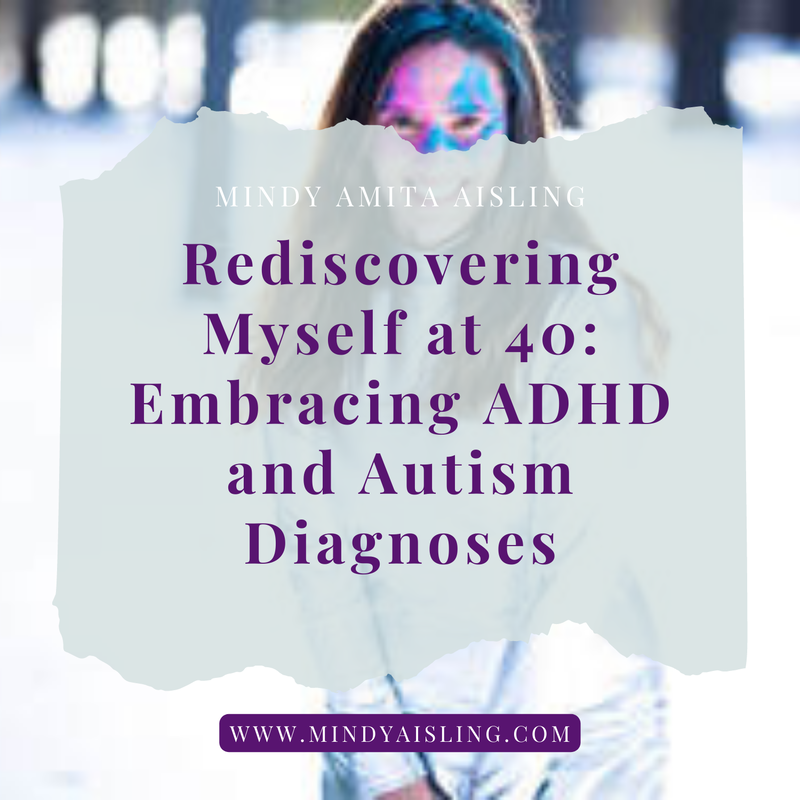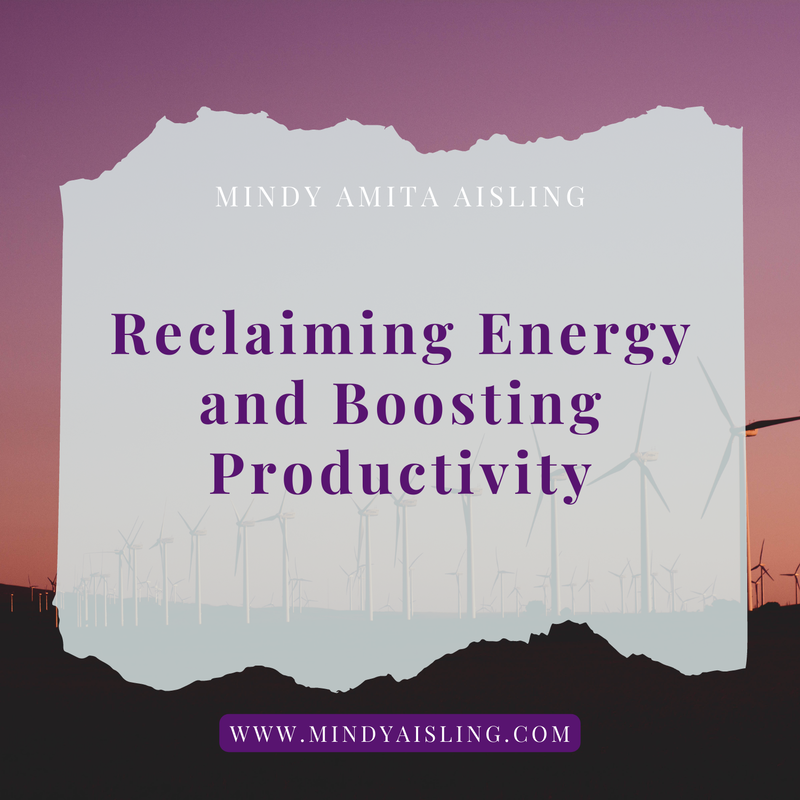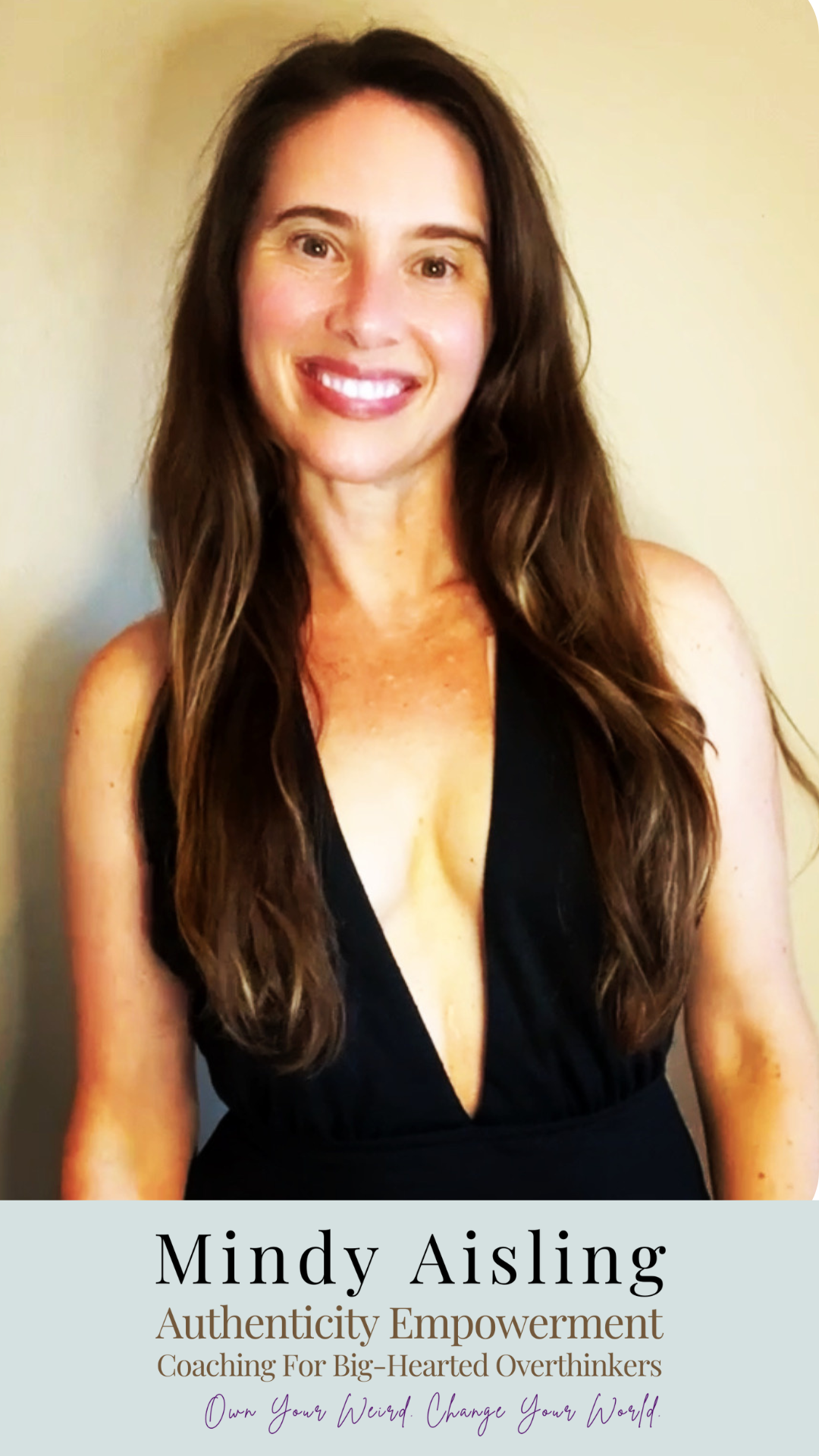|
Life has a funny way of unveiling its mysteries just when you think you've got it all figured out. It was in my 40s that I embarked on a journey of self-discovery that would forever change the way I saw myself and the world around me. Little did I know that the answers I had been seeking for decades would come in the form of two diagnoses: Attention-Deficit/Hyperactivity Disorder (ADHD) and Autism Spectrum Disorder (ASD).
As a child, I was often described as "quirky" or "different." I excelled in certain subjects while struggling to maintain focus in others. Social interactions felt like a complex dance that everyone else seemed to know the steps to, leaving me stumbling and feeling out of sync. I carried a sense of not fitting in, of being an observer in a world that spoke a language I struggled to fully grasp. As the years went by, I developed coping mechanisms to navigate a world that felt overwhelming. I meticulously organized my surroundings, created rigid routines, and immersed myself in solitary activities where I could hyperfocus. Yet, something still felt amiss. There was a persistent feeling that I was wearing a mask, trying to fit into a mold that wasn't quite right for me. It wasn't until my 40s that I decided to seek answers. The process of pursuing a diagnosis was both nerve-wracking and liberating. Would I be dismissed as an adult seeking attention for something I had managed to hide for so long? Or would I finally receive the validation that had eluded me all these years? The journey felt like a leap of faith, a leap that I needed to take for my own understanding. The diagnoses of ADHD and Autism were revelations that transformed my perception of self. The ADHD diagnosis explained the constant whirlwind of thoughts that had made focusing on tasks a Herculean effort. The tendency to lose track of time, the bursts of energy followed by crashes of exhaustion – they all made sense within the framework of ADHD. The Autism diagnosis was equally enlightening. Suddenly, the struggles with social cues, the intense need for predictability, and the sensory sensitivities had a name. Autism wasn't something to be feared; it was a facet of my identity that contributed to my unique way of experiencing the world. It was a reminder that I wasn't broken; I was beautifully different. With these diagnoses came a sense of relief – the relief of knowing that I wasn't alone in my struggles, that there were others who shared similar experiences. But more importantly, the diagnoses gave me permission to embrace myself fully. I began the complicated (but rewarding) journey of discovering ways in which I was masking and how I could unmask and be authentically me, quirks and all. The impact of these diagnoses rippled through every aspect of my life. I began to approach challenges with a newfound understanding of my cognitive patterns. I explored strategies tailored to my ADHD and Autism, finding ways to harness their strengths while mitigating their challenges. Instead of being sources of shame, my diagnoses became sources of empowerment. Social interactions became less daunting as I learned to communicate my needs and boundaries. I sought out communities of individuals with similar experiences, fostering connections that were rooted in empathy and shared understanding. The once-overwhelming world began to feel navigable, a landscape that I could explore at my own pace. As I reflect on this journey, I am struck by the resilience of the human spirit. The ability to adapt, learn, and grow is a testament to our capacity for self-discovery. Being diagnosed with ADHD and Autism in my 40s wasn't just a diagnosis; it was an awakening. It was an invitation to live authentically, to embrace neurodiversity, and to celebrate the beautiful mosaic of humanity in all its forms.
0 Comments
Reclaiming Energy and Boosting Productivity: A Neurodivergent Journey Towards Self-Compassion8/25/2023 Navigating a neurotypical-oriented society can sometimes lead to a cycle of shame, self-criticism, and unrealistic expectations that drain valuable energy. The path to increased productivity and well-being for neurodivergent individuals begins with shedding the weight of shame, self-beatup, and the incessant "shoulding" that holds them back. By embracing self-compassion and authenticity, a transformative journey towards higher energy levels and heightened productivity unfolds.
Breaking Free from Shame: Shame acts as a silent energy drain, perpetuating feelings of inadequacy and unworthiness. For neurodivergent individuals, societal pressures to conform can intensify these feelings. Reclaiming energy starts with recognizing that neurodiversity is a beautiful variation, not a flaw. Acknowledge your unique strengths and the contributions you bring to the table. Replace self-shaming thoughts with self-compassion. Treat yourself as you would a dear friend. Understand that mistakes are part of growth, and your journey is valid regardless of societal norms. Embracing your authenticity fosters an environment where energy can flow freely. Cultivating Self-Compassion: Neurodivergent individuals often hold themselves to unrealistic standards, leading to perpetual self-beatup. By practicing self-compassion, you can redirect this energy towards growth and productivity. Begin with mindfulness. Observe your thoughts and feelings without judgment. When a critical thought arises, challenge it with self-kindness. Understand that everyone, neurodivergent or not, has strengths and areas for improvement. Remember, your worth isn't determined by external achievements. Celebrate small victories and progress, and acknowledge that setbacks are part of any journey. Redirect energy towards learning and growth, turning self-beatup into a catalyst for positive change. Banishing the "Shoulds": "Shoulding" on yourself involves imposing unrealistic expectations rooted in societal norms. This drains energy and stifles authenticity. Neurodivergent individuals often feel pressured to conform, leading to internal conflicts and exhaustion. Break free from the "should" trap by redefining success. Focus on what aligns with your values and strengths, not arbitrary benchmarks. Embrace a growth mindset, understanding that progress is more important than perfection. Practice saying "no" to obligations that drain energy and don't align with your true self. Prioritize activities that nurture your passions and well-being. By releasing the "shoulds," you create space for authentic pursuits and boost overall productivity. Embracing Authenticity for Renewed Energy: Reclaiming energy and boosting productivity for neurodivergent individuals revolves around authenticity and self-compassion. Embrace your neurodiversity as a source of strength, not limitation. Redirect the energy once consumed by shame, self-beatup, and "shoulding" towards meaningful growth and self-fulfillment. In the journey towards authenticity, remember that seeking support is a sign of strength. Professional counselors, mentors, and support groups can provide valuable guidance. Surround yourself with individuals who appreciate your uniqueness and contribute positively to your growth. Reclaiming energy and enhancing productivity is a lifelong journey. By cultivating self-compassion, celebrating authenticity, and banishing the energy-draining cycle, neurodivergent individuals can unleash their full potential, foster personal growth, and make a lasting impact in both their lives and the world around them. |
AuthorMindy Amita AislingAuthenticity EmpowermentLife Coaching for Big-Hearted Overthinkers & Entreprenerds🐲Own Your Weird
🌎 Change Your World ⬇️ DIY Courses 👩🏻💻1:1 RemoteCoaching Fully Accredited ICF Certified Mindy Amita Aisling, is a professionally trained and board-certified leadership, authenticity, and entrepreneur coach.
Mindy exceeds all requirements set forth by the International Coaching Federation (ICF) for Master Coach certification. Mindy is also a licensed mediator, communications coach, and conflict resolution practicer. As a mediator, she has worked both in private practice and as a court appointment mediator at her local county courthouse. Through her innovative approach, she assists clients in examining their limiting beliefs, questioning their assumptions about how the world works, and releasing the notion that they are anything less than perfect. As a result, individuals who work with Mindy cultivate the ability to stand firm in their beliefs, live authentically and decisively, and discover an experience of life that is easy and graceful. In 2021, Mindy founded How to Be Human and Entreprenerd. These programs have enabled her to share her wisdom and knowledge with a broader audience in service of her vision of helping others live authentic lives This, in turn, has empowered more individuals to lead their most TRUE and COURAGEOUS lives. When she is not working, Mindy can be found playing outdoors in the beautiful Pacific Northwest, creating art, spending time with friends & family, or with her nose deep in a book. You can sign up for her newsletter here. Archives
June 2024
Categories
All
ICF Certified Life CoachAffordable Online Life Coaching |



 RSS Feed
RSS Feed
